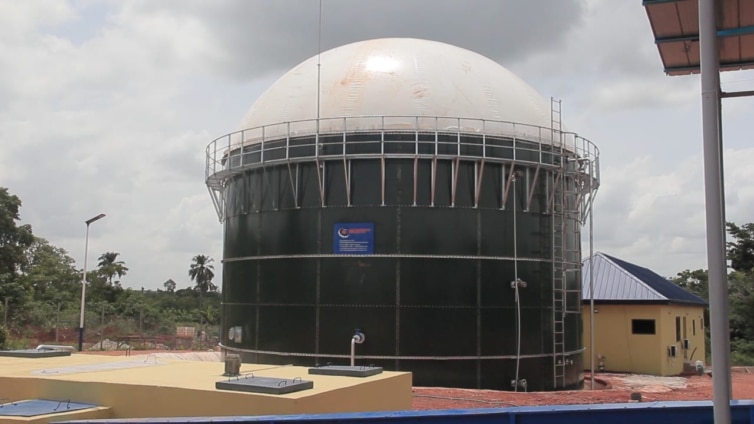The “Hybrid Waste to Energy as a Solution for Ghana” project, launched in 2020 is bearing fruit. Ghana’s Minister of Environment, Science, Technology and Innovation, Kwaku Afriyie, has just inaugurated a solid waste recovery plant built under the project. The unit located at Gyankobaa, in the municipality of Atwima Nwabiagya, Ashanti Region is currently processing 12 tons of solid waste per day.
The biodegradable material is turned into fertilizer for farmers. The new facility also combines solar photovoltaic, biogas and pyrolysis (thermal decomposition of materials at high temperatures in an inert atmosphere) technologies. These technologies allow solid waste to be converted into electricity.
Funding from Germany
The new plant, named “Hybrid PV-Biogas-Pyrolysis Plant” has a capacity of 400 kW. For the government, the plant solves the dual problem of solid waste management and electricity supply. Currently, Ghanaians produce 14,000 tons of garbage per day, two-thirds of which ends up in sewers or is burned in landfills.
The Gyankobaa plant was built by a consortium of German and Ghanaian research institutions in collaboration with Ghana’s Ministry of Environment, Science, Technology and Innovation. This is the second phase of the “Hybrid Waste to Energy as a Solution for Ghana”.
The third phase of the project aims to create a business model based on the results of the technical and economic feasibility studies of the Gyankobaa Waste-to-Energy project. This model will serve as the basis for the construction of 10 other waste-to-energy plants in other regions of Ghana. Environmental and sustainability studies, as well as policy gap analysis and guidelines development, are also planned for the four-year “Hybrid Waste to Energy as a Solution for Ghana” project.
Read also –
Germany financed the construction of the waste-to-energy plant in Gyankobaa with 6.2 million euros through the Federal Ministry of Education and Research. This will primarily benefit the population of Kumasi and its surroundings.
Inès Magoum
